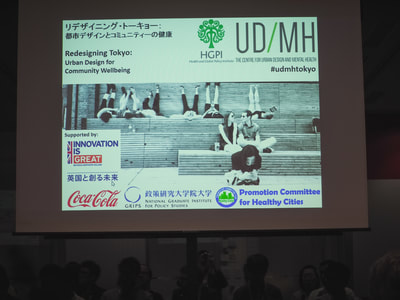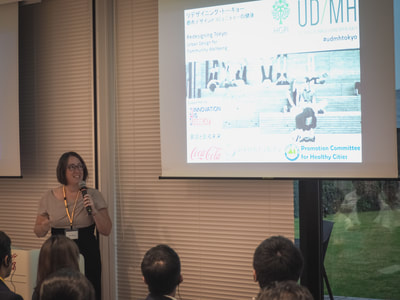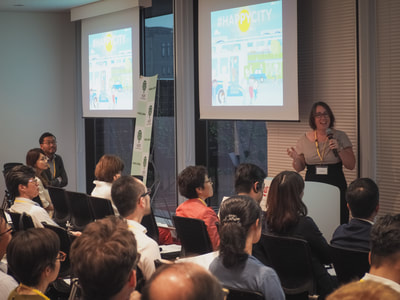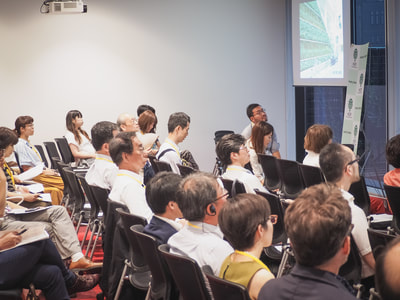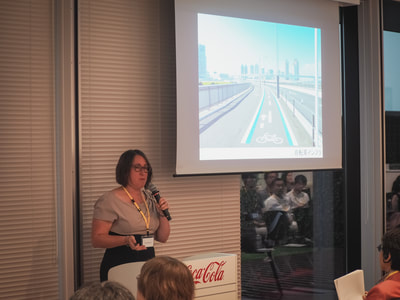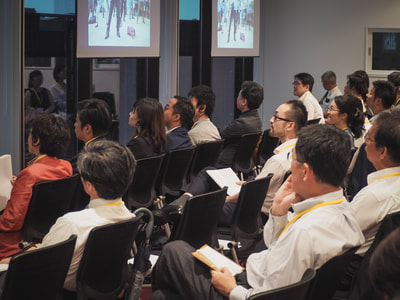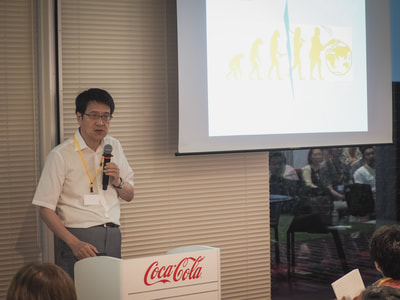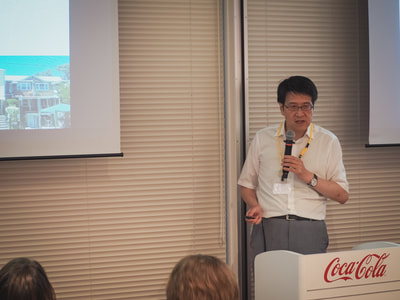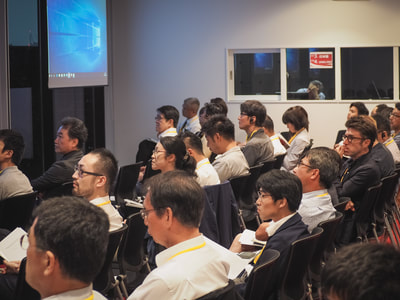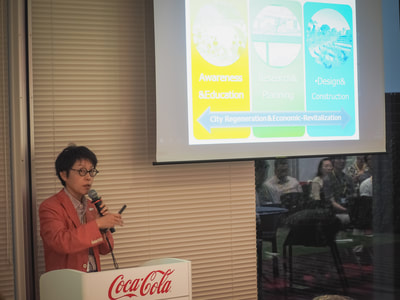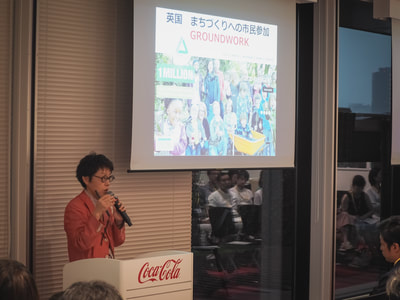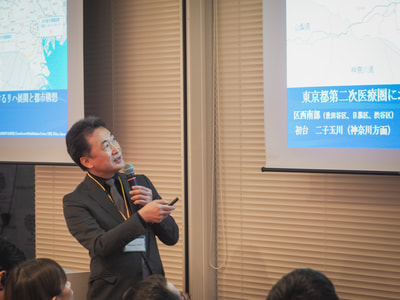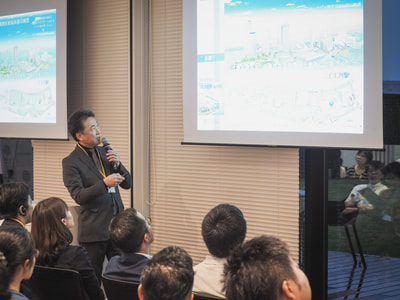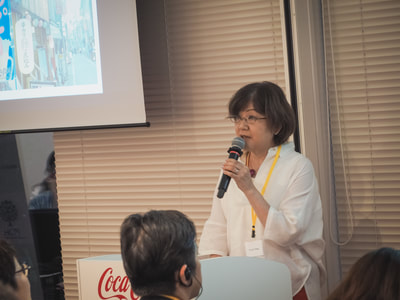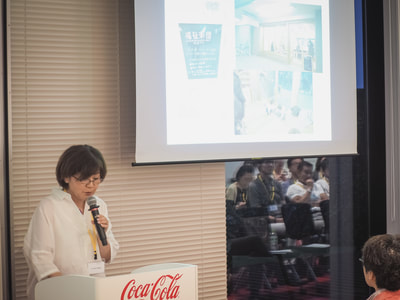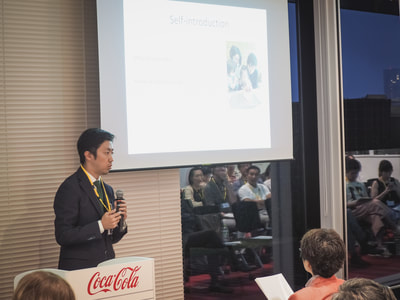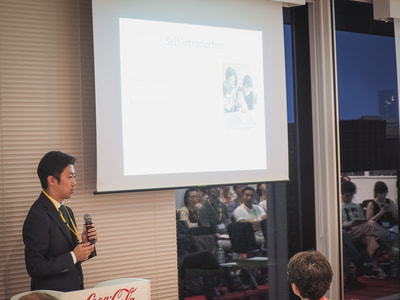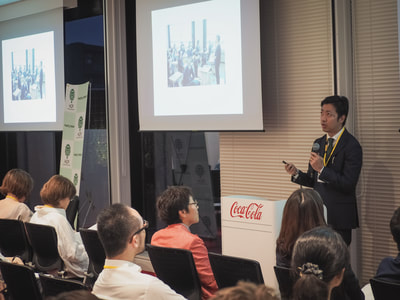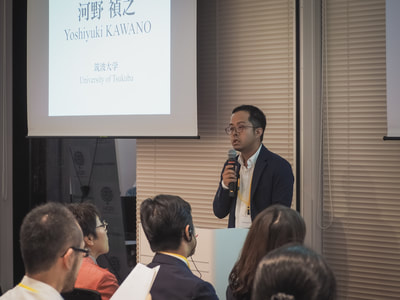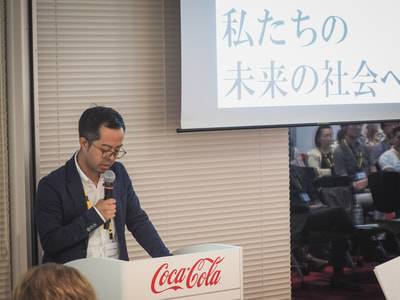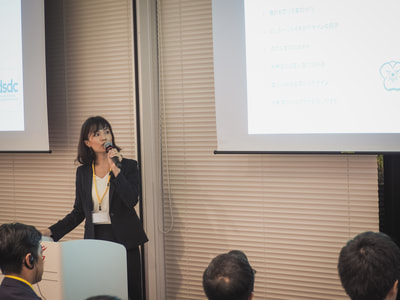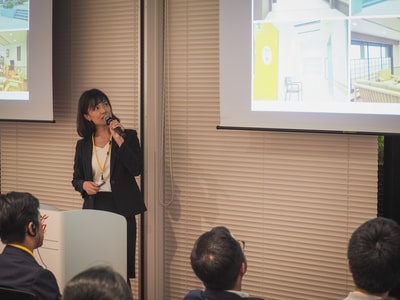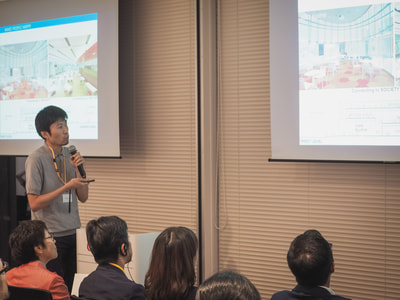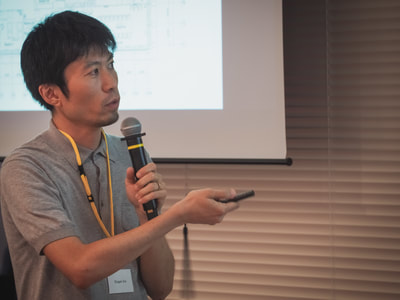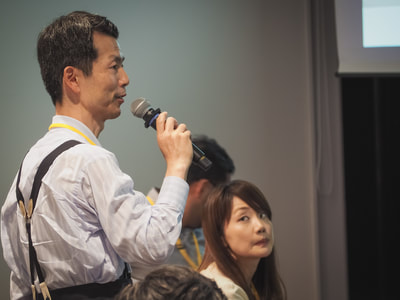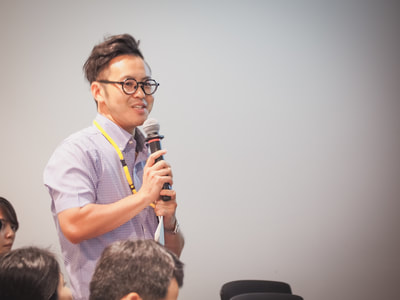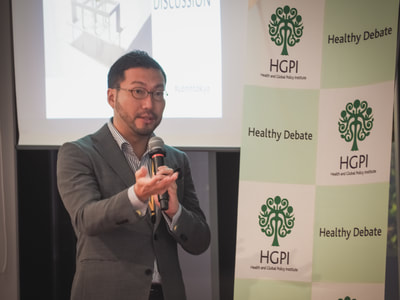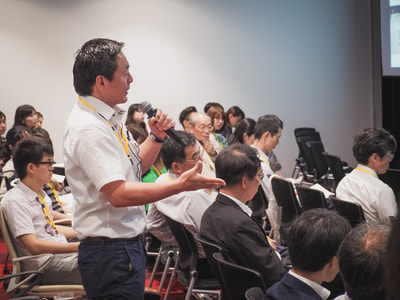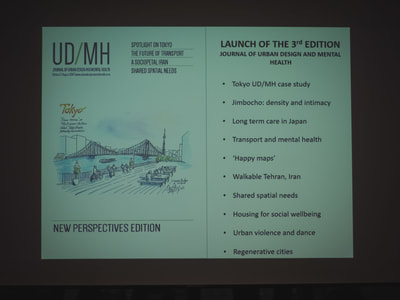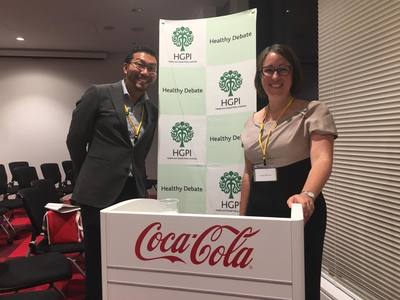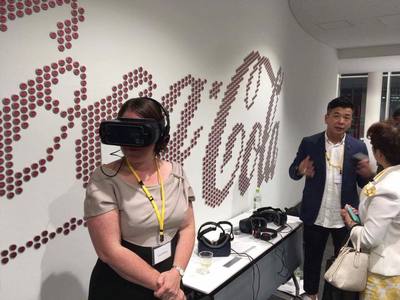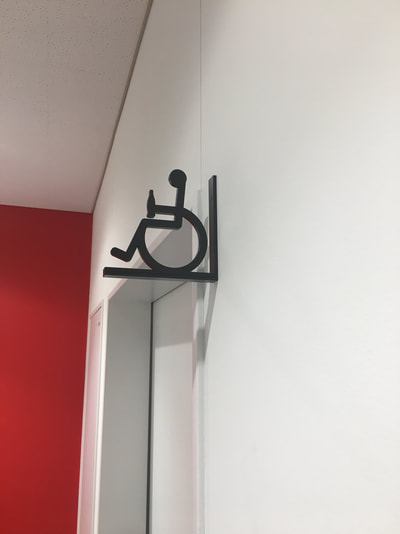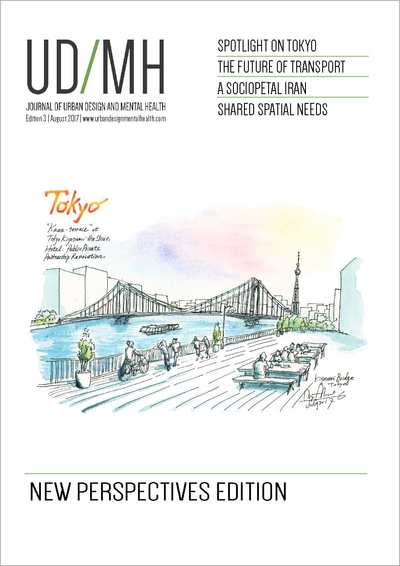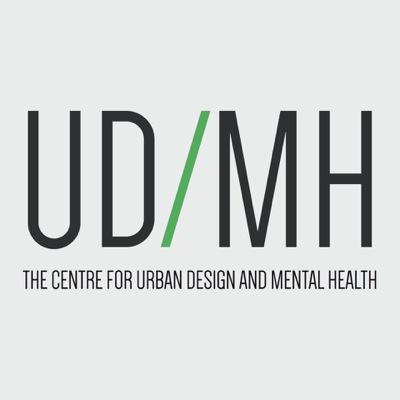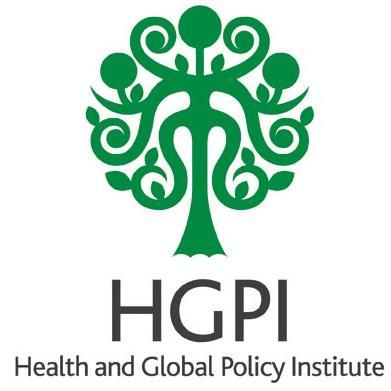UD/MH Tokyo Dialogue
Tokyo: 1 August 2017 at Coca-Cola Japan HQ, Tokyo
WHAT WE TALKED ABOUT: a summary
On 1 August 2017, the Centre for Urban Design and Mental Health delivered our 3rd city dialogue in Tokyo in partnership with Japanese think tank Health and Global Policy Institute. The event brought together architects, urban planners, health professionals, policymakers, academics and others from the Tokyo area to learn and share knowledge and experience at the nexus of urban design and mental health. We heard eight 5-minute talks from diverse Japanese experts who all work and think around urban design for mental health. Themes that emerged included:
Continuing our tradition of holding our events in architecturally exciting buildings, we were delighted that the first Japan-based HQ building to achieve LEED Platinum status, Coca-Cola Japan, agreed to host this Dialogue.
- Recognition of design for community mental health as an integral aspect not just of supporting good mental health, and of living with a mental disorder, but of recovery and rehabilitation from any disorder.
- The imperative of design for dementia in a super-ageing society.
- Designing workplaces to promote good staff mental health.
Continuing our tradition of holding our events in architecturally exciting buildings, we were delighted that the first Japan-based HQ building to achieve LEED Platinum status, Coca-Cola Japan, agreed to host this Dialogue.
|
LAYLA MCCAY, UD/MH Director, discussed the links between urban design and mental health, with some examples from her Tokyo research.
|
YOSHIHARU KIM 金 吉晴 氏 is president of Japan's National Center of Disaster Mental Health and the Director of the Department of Adult Mental Health, National Center of Neurology and Psychiatry (NCNP), Japan, affiliated to the Ministry of Health, Labor and Welfare. He set the scene with a look at the historical context of how mental health has been addressed in jails and asylums, and the evolution to care in the community - which means designing for good quality, appropriate homes and diverse, inclusive communities that are 'supportive but stimulating'.
|
|
NAOMI SAKURAI 桜井 なおみ 氏, in addition to being a social worker, professional engineer, and industrial counselor, is President of Cancer Solutions Co., Ltd and Patient Representative at Japan's National Cancer Control Promotion Council. She discussed her realisation in the UK that urban planning was intrinsic to health promotion. After being diagnosed with cancer, her patient and professional perspectives enabled her to bring these ideas to Japan, including community engagement in urban planning for wellbeing.
|
MASAHARU SAKOH 酒向 正春 氏 is Director of Nerima Ken-ikukai Hospital and a stroke rehabilitation specialist. He is interested in community design to support patients once they have been discharged from hospital. He discussed the importance of community integration for better quality of life and mental health in order to support rehabilitation after any illness. His work includes the design of Hatsudai Healthy Road (interesting article in English) in central Tokyo, which delivers a wide, well-lit, accessible pavement lined by health and social facilities.
|
|
FUMIKO MEGA 妻鹿 ふみ子 氏 is a Professor of Social Work at the School of Health Sciences at Tokai University and manages the Japan Volunteer Coordinators Association. Her talk focused on leveraging urban design to create a sense of belonging in the community, with a particular focus on the opportunities of so-called 'third spaces' in Tokyo.
|
TARO YOKOYAMA 横山 太郎 氏 is a medical oncologist and palliative care doctor at Yokohama Municipal Citizens’ Hospital. He works on the “CO-MINKAN” project, a privatized community center for healthy urban development. He also supports the development of a VR dementia simulation to increase insight for both carers and urban designers. He proposed that dementia is not a personal problem; it is a city problem: cities should be designed to better meet the needs of the super-ageing population by implementing dementia-friendly design.
|
|
YOSHIYUKI KAWANO 河野 禎之 氏 is a clinical psychologist and Assistant Professor in the Center for Diversity and Accessibility, University of Tsukuba. He is also a member of the Dementia Friendly Japan Initiative (DFJI) and World Young Leaders in Dementia (WYLD). He attested: "there is no reason for dementia patients to lose things they enjoy just because of challenges of navigating the city". He proposed the role of urban design in enabling people with dementia to remain in their houses and navigate their neighbourhoods, including safely using transportation.
|
KANA HISHIDA 菱田 佳奈 氏 works at Tokyu Land Corporation on the development of a dementia-friendly care residence, Setagaya-nakamachi. This project has been delivered in partnership with the Dementia Services Development Centre (DSDC) at Stirling University in the UK. She specifically highlighted the opportunities of integrating dementia-friendly design in terms of colour, engagement with nature, and creating a sense of security and community.
|
|
SHIGEKI IRIE 入江 茂樹 氏 from Jun Mitsui & Associates Inc. Architects and Pelli Clarke Pelli Architects Japan, Inc. is the architect of the new Coca-Cola Japan headquarters building in Shibuya, Tokyo, the first HQ building in Japan to achieve LEED Platinum status and the venue of this event. A focus of this building was connection to nature, to colleagues, and to the community. This meant creating a place of interaction. Irie discussed the specific design features intended to improve staff happiness and mental wellbeing; particularly relevant in Tokyo where people work long hours, and good mental health at work is an emerging priority for companies - and thus for architects and designers.
|
And finally, Layla McCay launched Edition 3 of the Journal of Urban Design and Mental Health, which includes a spotlight on Tokyo. Read it here.
|
PHOTOGRAPHS
THANKS
Partner: Health and Global Policy Institute
Supporters: British Embassy Tokyo, Coca-Cola Japan, National Graduate Institute for Policy Studies, NGO Promotion Committee for Healthy Cities
Videography: Kohei Kanayasu
Photography: TJ Robinson Moncatar
Supporters: British Embassy Tokyo, Coca-Cola Japan, National Graduate Institute for Policy Studies, NGO Promotion Committee for Healthy Cities
Videography: Kohei Kanayasu
Photography: TJ Robinson Moncatar

